UPIC Health Launches Community Lift Jobs Program
FOR IMMEDIATE RELEASE
Contact: Mary Tucker
Phone: 855-587-4246
Email: mary@upichealth.com
UPIC Health Launches Community Lift Jobs Program
 Washington, DC (Jan. 15, 2019) – January marks the second month since the launch of UPIC Health, LLC’s UPICares Community Lift Jobs Program, which provides meaningful employment for women who are facing housing insecurity or getting back on their feet after incarceration. UPIC Health is partnering with N Street Village and Friends of Guest House, non-profits assisting women in the DMV area, who will provide support and referrals for their clients who would be a great fit for the job. The new UPIC team now has beautiful office space to work from at WeWork Midtown Center (1100 15th St NW, Washington, DC 20005), courtesy of WeWork.
Washington, DC (Jan. 15, 2019) – January marks the second month since the launch of UPIC Health, LLC’s UPICares Community Lift Jobs Program, which provides meaningful employment for women who are facing housing insecurity or getting back on their feet after incarceration. UPIC Health is partnering with N Street Village and Friends of Guest House, non-profits assisting women in the DMV area, who will provide support and referrals for their clients who would be a great fit for the job. The new UPIC team now has beautiful office space to work from at WeWork Midtown Center (1100 15th St NW, Washington, DC 20005), courtesy of WeWork.
“We are thrilled to announce the launch of our national Community Lift Jobs Program, representing the intersection of empathy and opportunity. With WeWork offering participants a beautiful and well-appointed office space, community partners helping women to get back on their feet, and UPIC Health providing a supportive work environment, there is a strong sense of community here. We are beyond excited for this partnership,” said Mary Tucker, CEO of UPIC Health, LLC.
“We are excited to partner with UPIC Health on the UPICares Community Lift Jobs Program, in collaboration with N Street Village and Friends of Guest House. In addition to their office space at WeWork Midtown Center, we look forward to hands on opportunities for our staff and member companies to collaborate and support this important work,” said Lex Miller, WeWork’s General Manager of the Northeast and Mid-Atlantic.
UPIC’s mission is to 1. Be Happy, 2. Be Awesome, and 3. Help Others with One and Two.
Through strategic client relationships, UPIC Health assists over one million patients in navigating the health system each year. Three years ago, UPIC Health launched UPICares – a community involvement initiative designed to support those who are struggling. Through UPIC Health’s ongoing work, the team identified an immediate opportunity to create the UPICares Community Lift Jobs Program for these amazing women whom have recovered through the exceptional support of N Street Village and Friends of Guest House, and are now in the best position to aid patients in similar situations.
“N Street Village is proud to partner with UPIC Health and WeWork. We know that a just and equitable future starts with recognizing the inherent worth and dignity of every woman, followed by the opportunities created through community partnerships like this,” from N Street Village CEO, Schroeder Stribling.
“Friends of Guest House is beyond grateful for the job readiness training and support offered by UPIC Health and the beautiful work space offered by WeWork. This opportunity of professional growth and employment stability for our community of returning citizens is truly something special, and I look forward to seeing these women thrive in their newly acquired positions,” Dan Mallon, Program Director at Friends of Guest House said in regards to the program.
In the future, UPIC Health also hopes to also assist female veterans who are struggling to find meaningful employment through the Community Lift jobs program.
About UPIC
UPIC Health is a mid-size, privately-held company with operations in Washington, DC and Norfolk, Va. A business process outsourcer, UPIC offers patient contact center, revenue cycle management, and teleservices to clients across the country, all practicing under the value-based reimbursement concept. UPIC is a 2018 Velocity Growth Award Winner and Growth Story of the Year. To learn more, visit our website at www.upichealth.com or email Mary Tucker, CEO at mary@upichealth.com. Follow us @UPICHealth.
###
Reach out for a free consultation today
Get StartedEMRs – Meaningless Use?
By Mary Tucker
March 26, 2019
UPIC Health CEO, Mary Tucker.
I read with interest Fortune magazine’s article about electronic health records (EHRs) and how they have not lived up to the promise they heralded back when our economy was bottoming out and the Obama administration allocated stimulus money to their adoption. It was a gold rush ten years ago in Health Technology, and as the article points out, not only has it not lived up to the promises, but in fact safety issues are mounting as a result. The company eClinicalWorks (eCW) took the brunt of the heat in this article. My company, UPIC Health, can certainly attribute many challenges with eCW in our own shop. But is it entirely the fault of EHRs? I don’t think so. And is there a way out without throwing out all the time and effort that’s gone into them over the last 10 years? Most definitely yes!
We’ve witnessed these tech gold rushes before in other industries and have experienced disappointing results. There is a significant missing link that is acutely resolvable once identified: Intention. Tech Sector is very young and yet across all industries and all demographics, we have submitted ourselves to it without taking the time to understand its purpose and use to human beings. We expect technology to solve big problems with the press of a button. We expect coders to understand the intricacies of business process and miraculously create a turnkey solution that all will adopt with an emailed description and a link to sign up. That may work for Angry Birds, but cardiac interventions – not so much.
Health technology – like any technology – should be employed to facilitate meaningful human connections.
Chasing down a lost pharmacy submission is not meaningful – its operational (and necessary). Understanding why the pharmacy submission got lost is more critical and imperative BEFORE launching any technology to understand and have documented the operational business processes as they are today and what the dream state would look like with the use of technology. Patient touch-points (such as phone, web, email, portal, front desk, back office, pharmacy, lab, etc.) should be evaluated and the patient process documented; compliance processes for each individual in the chain should be evaluated for opportunities to simplify, and exceptions should be understood.
Ten years ago, though, who had that kind of time? The economy needed stimulating, and in hindsight (despite Fortune’s poke in the industry’s eye) it’s still a good thing the gold rush happened. The new question is “now what?” You have spent millions on your EHR – do you just toss it out and start over? (Interestingly, I had an outpatient procedure a week ago and the entire process was on paper…) However, it is not worth abandoning the train when you’re halfway to your destination.
First, I recommend you start with your patient processes – spend time in your contact centers listening to calls, chats, portal interactions, and emails. Are your patients bounced around from group to group depending on what their need is? Are they calling and emailing multiple times to get their questions answered? That’s your first opportunity to identify your first Intention – minimize the steps to care for the patient! Remember – the greater the patient effort, the greater the cost to you. This focus will help you map how you want your EHR technology and make access to care smoother for the patient. This mapping can then be documented and submitted to tech development teams to use as their guide. Following, I offer these recommendations:
- Identify your first Intention (minimizing the steps patients must take to access care).
- Look at your Revenue Cycle Process – how much are you paying your EHR vendor and what percent of your claims have been denied and why? Begin with the Intention to understand the steps to cash to help identify current state and where the failures are happening.
- Observe the uses of EHR by clinical and administrative staff throughout a care scenario – what failed? Where and why did it fail? What would the perfect process look like? Your clinical and admin staff will tell you.
- Be Intentional about interoperability – if we know we haven’t cracked this nut yet, don’t expect the nut to miraculously crack on its own. Know the process for referrals as it is today and determine if there’s a midway point between your EHR, your staff, other providers in your network, and your patients. Think of bringing in a lean six-sigma team now who can do this work for you – this is what they do and it is worth the effort.
If you sustain your intentions to simplify with the understanding technology should facilitate meaningful human connections – and you have a view into where those connections have no meaning or value – you’ll be in a position to identify what you need in your EHR, what you’re missing, and a road map to repair.
Mary Tucker is CEO of UPIC Health, a contact center and revenue cycle management outsourcing firm focused on meaningful engagement in care. UPIC Health is based in Chantilly and Norfolk, Va. Follow us on Instagram and Twitter @UPICHealth.
Reach out for a free consultation today
Get StartedUPIC Volunteers Show Holiday Giving Spirit
By Jessica Lay
Dec. 31, 2018
 Thursday, December 13th was the perfect night for three UPIC volunteers to serve a warm meal to the residents of the Patricia Handy Place for Women, a short-term emergency housing facility run by N St Village. Lovingly known as Pat Handy Place, the shelter opens it’s doors to over 200 women per night. Volunteers were welcomed immediately upon walking into the shelter by staff and the women seeking shelter there alike. We served up a warm meal which was provided by local organizations, including DC Central Kitchen, to thankful shelter clients.
Thursday, December 13th was the perfect night for three UPIC volunteers to serve a warm meal to the residents of the Patricia Handy Place for Women, a short-term emergency housing facility run by N St Village. Lovingly known as Pat Handy Place, the shelter opens it’s doors to over 200 women per night. Volunteers were welcomed immediately upon walking into the shelter by staff and the women seeking shelter there alike. We served up a warm meal which was provided by local organizations, including DC Central Kitchen, to thankful shelter clients.
For UPICares, the ability to volunteer during work hours is an incredible experience.
Volunteering at the Patricia Handy Place for Women was a new experience for me, and a great one at that! Being able to take time out of my day to help serve food at the women’s shelter was amazing. I have always loved to help people, no matter what it is, and doing things like this actually makes a difference in peoples lives and I am glad to be apart of it. – Glori, UPICares Volunteer
Because of N St’s warmth and whole person approach to caring for the women that find themselves in a tight spot. they see many success stories; like Catherine, a woman who came to N St in 2016 and has been thriving ever since.
Also during the month of December, the Chantilly and Norfolk offices worked together to raise donations for a coat drive benefiting HER Shelter, which serves women and children survivors of domestic violence. The shelter received two coats, eight sweaters, and 93 items of warm clothing thanks to the combined efforts of the two UPIC offices.
UPIC is looking forward to continuing to make a positive impact on our clients, patients, and community in the coming year.
Author Jessica Lay is UPIC’s Program Lead for UPICares, the organization’s philanthropic initiative. She spends half of her time assisting patients through UPIC’s contact center and recently completed a degree in Aging Services Management. Follow us on Twitter and Instagram @UPICHealth.
Reach out for a free consultation today
Get StartedUPICares Serves Dinner at HER Shelter
By Jessica Lay
Nov. 16, 2018
Earlier this month, five members of the UPICares team served dinner to 12 women and nine children seeking refuge at the Help and Emergency Response (HER) Shelter. HER Shelter provides basic assistance and aims to promote healing and empowerment to those affected by domestic violence. The dinner was the first out of our Norfolk, Va., office and marked the beginning of 2018’s Hunger and Homelessness Awareness Week.
Team members Nikita, Amina, Jessica B., and Ana ready to serve dinner to shelter clients.
According to the Salvation Army, six percent of homelessness cases in the U.S. are caused by domestic violence. The National Alliance to End Homelessness reported that on a single night in January 2017, 16 percent of the overall homeless population (87,329 people) had experienced domestic violence. Survivors often need to leave home very quickly, sometimes with children or pets. This means that they must go without simple necessities like a change of clothes, food, or money.
According to the National Center on Domestic and Sexual Violence (NCDSV), the cycle of abuse starts with mounting tension, then a violent incident, and ends with a calm stage when the abuser might apologize profusely or even deny they did anything wrong at all. But not all abuse is physically violent. Abusers find many ways to control their partners.
Defining Domestic Violence
Domestic violence, also known as intimate partner violence (IPV), can manifest in several ways, such as controlling behavior, physical or sexual violence, withholding or hiding money and resources, emotional or verbal abuse, stalking, and isolation. Signs of domestic abuse can include:
- Fear of your partner or feeling threatened
- Feeling like you walk on eggshells or anxiety over potential reactions from your partner
- Feeling belittled or humiliated
- Having your possessions withheld or destroyed
- Having limited access to the phone, car, or finances
Abuse can happen to people of all ages, gender identities, and socioeconomic status. NCADV reports one in three women and one in four men have been victims of domestic violence at some point. IPV disproportionately affects those in the LGBTQ community, who might experience barriers accessing resources.
And children are often the hidden victims of domestic violence.
Chatting with clients in the food line.
Facts from the Childhood Domestic Violence Association(CDV):
- In the U.S., five million children witness domestic violence each year.
- Children from violent or abusive homes are much more likely to experience significant psychological problems, short and long-term.
- Those who grow up with domestic violence are six times more likely to commit suicide and 50 percent more likely to abuse drugs and alcohol.
Organizations like the HER Shelter provide warm meals, a safe place to stay, and are often the first step to survivors on their path to healing by improving economic security and overall well-being. This makes HER Shelter a perfect partner for UPIC Health, which strives to empower women every day.
“We believe we can inspire others to reach their ultimate potential, to establish a better life for themselves and their children.” -HER Shelter
UPICares volunteers arrived at the shelter with healthy food and drinks prepared ahead of time. We did not see every face while at the shelter. Some of the clients work nights and some are still healing and prefer to keep to themselves. Upon leaving the shelter, the UPICares team received many words of appreciation. One client even expressed that she wished we could cook for them every night.
The experience at the shelter inspired employees in Norfolk to launch a winter clothing drive. We hope to provide warm coats and clothing to the women, children, and teens at the shelter. If you would like to donate to HER Shelter, please contact erika@hershelter.com or call 757-485-1073.
Our meal consisted of lasagna, salad, cheese ravioli and tomato sauce, and fruit with whipped cream for dessert.
No one deserves to be mistreated. If you or someone you know is experiencing intimate partner violence or domestic abuse, please contact the National Domestic Violence Hotline at 1−800−799−7233 or TTY 1−800−787−3224.
You can also visit their website at https://www.thehotline.org/
Author Jessica Lay is UPIC’s Program Lead for UPICares, the organization’s philanthropic initiative. She spends half of her time assisting patients through UPIC’s contact center and recently completed a degree in Aging Services Management. Follow us on Twitter and Instagram @UPICHealth.
Reach out for a free consultation today
Get StartedUPIC CEO Featured in PLATTiTUDES Episode
By Juli Briskman
Nov. 26, 2018
UPIC Health CEO, Mary Tucker, was recently featured in a YouTube episode of “PLATTiTUDES” a series of interviews by consultant and former Virginia Lieutenant Governor Candidate, Susan Platt. A highly experienced campaigner and government affairs expert, Platt formed the Platt Consulting firm with her husband after running in the 2017 Democratic primary for Lt. Governor of Virginia.
She has been interviewing influential people for her Youtube channel for several months.
This episode was filmed in the days before the 2018 midterm elections and explores Tucker’s business philosophy and wide range of advocacy for women’s issues.
Juli Briskman is Chief Marketing Officer for UPIC Health, LLC. UPIC outsources patient contact center, revenue cycle management, and telebehavioral health services. To learn more, visit the Who We Are page on our website. Follow us @UPICHealth.
Reach out for a free consultation today
Get StartedGrowing Out Of Bad Relationship Cycles
By Juli Briskman
December 4, 2018
This is the second in a series of blogs about domestic violence experienced by UPIC employees and their families. #WeAreWhoWeServe
 Something remarkable happened when UPIC encouraged employees to wear purple in honor of National Domestic Violence Awareness month in October. The day set was Oct. 30 and as employees shared their photos from the offices and from home, many came with snippets and stories attached.
Something remarkable happened when UPIC encouraged employees to wear purple in honor of National Domestic Violence Awareness month in October. The day set was Oct. 30 and as employees shared their photos from the offices and from home, many came with snippets and stories attached.
We have turned those stories into a blog series called #WeAreWhoWeServe. This is the first expanded story from one of our coworkers who did not want to reveal her name. We will call her Natalie.
Natalie, 34, is originally from Richmond, Va., and the eldest of six children. When we asked UPIC employees to wear purple in October, she wrote that she did not grow up in an abusive household but remembers her grandmother telling her to keep her smart mouth shut or a man would “beat her butt.”
Natalie says she did not grow up “abused.” But her mother was shot in the head and died when she was 12 and her grandmother, who raised her, was verbally abusive toward her own boyfriend while Natalie was in her custody.
This is where Natalie believes she learned to be a fighter and to have strong opinions that may have led to the rough relationships she experienced during her college years. She says it was always about controlling her.
“As I got older I was in some relationships like that as well. I always considered myself a fighter. It was like a mutual thing,” she said. She was in two abusive relationships while attending Old Dominion University in Norfolk, Va. and shortly after. And they each ended when the boyfriend was jailed on unrelated charges. “I eventually realized that’s not the relationship I wanted.”
In the first relationship, Natalie said her boyfriend went from being a ‘9-to-5 guy’ to some kind of street guy.” He later told her that he changed to prove he was strong and to control her. They would verbally battle, grab each other and tussle. “We broke a lot of things.”
This boyfriend was jailed for shooting a college basketball player.
“He came in my apartment and said ‘hey babe cut on the TV look what I did.’ He thought I was the kind of female that wanted a street guy. In his crazy mind he thought that was what I wanted,” she said. “I always wonder if my demeanor pushed him to be that way. He later said that he needed to do that to control me.”
It’s difficult for Natalie to label her relationships as violent and she finds ways to blame herself. “Every time it was me saying something to them and it was something that just made them snap.”
She’s not atypical. Many victims blame themselves. And according to LoveIsRespect.org, college students are not equipped to deal with dating abuse as 57% say it’s hard to identify. On the whole, 43% of dating college women report experiencing violent and abusive dating behaviors.
But while she feels she’s “grown out of” accepting violent relationships, it’s clear Natalie had some hurdles to break a cycle that accepts verbal and physical abuse as the norm. She grew up in a neighborhood with “a bunch of gang bangers and drug dealers.” Her mother suffered from crack addiction that eventually led to her death. And her grandmother came from an abusive relationship that Natalie eventually realized led to her comments about getting her butt beat. She is the only one of her siblings to attend college.
The Second Relationship
In her second college-age relationship, things got more physical: “It was way more on him. It was way more that he had to control me and I wouldn’t allow it. I didn’t really want to fight. I can’t really remember what we fought about.”
Twice he tried to choke her. The first time they were in a car. “I was driving. I said something smart to him and he choked me.” She remembers waking up and the car was still moving.
The second time it occurred at his uncle’s house while the boyfriend was drinking. She remembers calling for help, nobody was coming and thinking that she may actually die that night.
“I was screaming telling them to come to get him and they were like completely ignoring me. And I remember being on the floor and he was choking me and I remember thinking he was going to kill me.” The second abuser was also put in jail and right around the same time, Natalie got a job and an apartment.
Natalie changed the type of men she dates and is in a relationship now. But she finds the tools for control have just changed.
She decided if she dated guys that make money she would not have to deal with physical abuse. But: “Guys with money try to control me as well.”
No one deserves to be mistreated. If you or someone you know is experiencing intimate partner violence or domestic abuse, please contact the National Domestic Violence Hotline at 1−800−799−7233 or TTY 1−800−787−3224. You can also visit: www.thehotline.org.
Juli Briskman is Chief Marketing Officer for UPIC Health, LLC. UPIC outsources patient contact center, revenue cycle management, and telebehavioral health services. To learn more, visit the Who We Are page on our website. Follow us @UPICHealth.
Reach out for a free consultation today
Get StartedUPICares Leads Program at D.C. Women’s Shelter
By Jessica Lay
Oct. 25, 2018
This week will mark the beginning of UPICares’ workforce development program with N Street Village, a community of empowerment and recovery for women in Washington, D.C. Clients who participate in the eight-week educational series will learn and practice skills such as professional communication, organization, and self-care.
View of N St Village, where it sits on corner of N and 14th St
We couldn’t think of a better time to start this next level of engagement with our partner N Street as October is Domestic Violence Awareness Month. One in three women has reported to N Street that violence and/or abuse are contributing factors to their unstable housing situation. Domestic abuse can range from name calling to physical or sexual assault. Controlling behaviors, such as withholding funds and intimidation, can keep women from leaving abusive partners.
In fact, three in five women arrive at N St with no independent source of income. This means finding gainful employment is paramount to leading a healthy and independent lifestyle.
Knocking on N St’s door is the first step to ensuring a warm meal and a safe place for the night for a woman struggling to make ends meet. However, N Street goes beyond providing basic necessities. Clients of the Village can also take advantage of wellness services, from dental care to mental health care, provided at the center. Thus, UPIC believes that work and communications skills are a natural extension of this support to help get women on the path to independence.
At UPIC we really believe “It Takes a Village.” And we are excited for this deepened relationship with N Street as we all work together to empower women. To learn more about our past work with N Street, visit the UPIC news page.
Author Jessica Lay is UPIC’s Program Lead for UPICares, the organization’s philanthropic initiative. She spends half of her time assisting patients through UPIC’s contact center and recently completed a degree in Aging Services Management. Follow us on Twitter and Instagram @UPICHealth.
Reach out for a free consultation today
Get StartedUPIC Attends N Street Night at Nationals Park
By Jessica Lay
Sept. 28, 2018
N St Village Members accepting a Spirit Award on Nats Field
UPICares volunteers had a blast at N Street Village’s Night at Nationals Park last week. Although our local team lost 2-4 against the New York Mets, the ‘friendraiser’ was a home-run for the women’s shelter that supports nearly 2,000 women a year.
UPIC employees that made in-kind donations to N St were entered into a raffle for a pair of tickets to the game. We made sure to take into consideration their most needed items at the moment: travel sized toothpaste (supplies were recently exhausted) and deodorant.

Nat fans intently watching the game.
N Street allocated great seats for the game and each ticket included a $10 concession credit and $5 donation to the Village.
To add to the excitement, the Washington Nationals honored local charities and organizations with Spirit Awards during the pre-game ceremonies. Before the first pitch, N Street employees were invited onto the ball field to accept a Spirit Award.
N Street’s mission was featured on the big screen twice, along with the logo that features a D.C. skyline.
N Street provides basic needs such as beds and warm meals for those in need. And daytime services include dental care, shelter, and wellness services, such as yoga, and much, much more. N Street’s mission is to empower homeless and low-income women in Washington D.C. to claim their highest quality of life. The Village serves about 208,000 meals and facilitates more than 5,000 showers per year.
Each woman comes to the village with her own unique set of circumstances. The Village works to meet those needs and empowers clients to overcome challenges, heal, and restore a sense of dignity and self-worth. N Street clients’ diverse challenges include:
- Disability, mental illness, addiction, 64%
- Self-reported HIV, 6%
- Lack of income, 50%
- Older population, 51% are over 50
- Discrimination, 81% percent are women of color.
“Every day at least one woman comes to N Street Village for the first time, and I know that – but for a few circumstances of fortune and timing – ‘she’ could be me.” -Schroeder Stribling, CEO of N St Village
UPICares volunteers had a blast at the game!
UPICares also is partnering with N Street in a workforce development program that clients of the Village can participate in. The program will help clients develop communications skills and prepare to get back into the workforce.
N Street is gearing up for Fall with some notable events:
- Annual Shero Walk on Saturday, Oct. 20th
- 2018 Coat Drive– N St still needs over 100 coats to reach their goal, supplies are needed by Wednesday, Oct. 24th
Author Jessica Lay is UPIC’s Program Lead for UPICares, the organization’s philanthropic initiative. She spends half of her time assisting patients through UPIC’s contact center and recently completed a degree in Aging Services Management. Follow us on Twitter and Instagram @UPICHealth.
Reach out for a free consultation today
Get StartedUPIC Hires Veteran Healthcare Operations Director
FOR IMMEDIATE RELEASE
Contact: Juli Briskman
Phone: 703 772-1148
Email: juli@UPICHealth.com
Twitter: @UPICHealth

Rick Sletten joins UPIC Health as Operations Director in Norfolk, Va.
NORFOLK, VA (Sept. 26, 2018) — UPIC Health, LLC recently hired Rick Sletten as Operations Director to lead the growing organization’s ongoing effort to improve and centralize healthcare delivery by aligning technology and resources to better serve UPIC clients and their patients.
“I chose to join UPIC because the organization’s pioneering strategy is the way forward in healthcare to maximize revenue and increase access,” Sletten said.
Sletten has more than 10 years of experience leading large health care operations most recently with Optum, a wellness company that serves more than 74 million customers as part of the UnitedHealth Group family of companies.
While at Optum, Sletten honed his revenue cycle management skills and created industry-leading processes governing front-end revenue operations including patient access and registration, charge entry & coding, service authorizations, time-of-service collections, scheduling. He is looking forward to advancing and modernizing these processes for UPIC clients.
“Rick’s experience has given him a national view into the intricacies of the revenue cycle process. He can identify the bottlenecks that hinder timely payments and remove them permanently,” said UPIC Health CEO, Mary Tucker. “We are thrilled to have Rick on board to shape the future of UPIC’s model for meaningful engagement in care. He will build on an already great foundation of service delivery as we continue to grow our services in the United States and globally.”
Sletten is a member of the American College of Healthcare Executives and the Healthcare Financial Management Association. He lives in Norfolk, Va. with his wife and toddler. To learn more about his experience in healthcare, visit his LinkedIn profile.
About UPIC
UPIC Health is a mid-size, privately-held company with operations in Chantilly and Norfolk, Va. A business process outsourcer, UPIC offers patient contact center, revenue cycle management, and telebehavioral health services to clients across the country, all practicing under the value-based reimbursement concept. UPIC is a 2018 Velocity Growth Award Winner and Growth Story of the Year. To learn more, visit our website at www.upichealth.com or email Chief Marketing Officer, Juli Briskman at juli@upichealth.com. Follow us @UPICHealth.
###
Reach out for a free consultation today
Get StartedUPICares and Kennedy & Co. Partner to Help Women
By Jessica Lay
Aug. 29, 2018
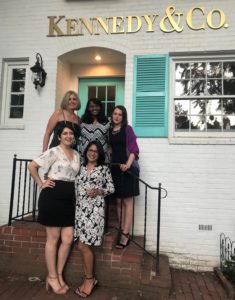
UPICares team in front of event space in Georgetown
UPICares and Kennedy and Co. recently co-hosted a happy hour fundraiser for BRAWS, a local organization that provides feminine care products, bras, and underwear to women, children, and students who cannot make the items a budgetary priority.
Those who attended the event in the swanky Georgetown district of Washington, D.C., contributed $560, 10 bras, three pairs of adult underwear, and 26 pairs of children’s underwear. Nineteen boxes of tampons and 10 boxes of pads were also collected, making for a total of 1,034 menstrual hygiene products!
Menstrual inequity effects many populations including (but not limited to) incarcerated women, those that are homeless or living under the poverty line, survivors of domestic abuse, people that are transgender or non-conforming, and youth in schools.
Although the law recently changed in Virginia, women in prisons often do not have access to menstrual supplies and often cannot afford to buy those in the commissary. Those within the prison system or those that are homeless/low-income tend to resort to making their own menstrual devices from low-quality supplies. Forced non-hygienic practices can lead to infection and sometimes serious health implications.
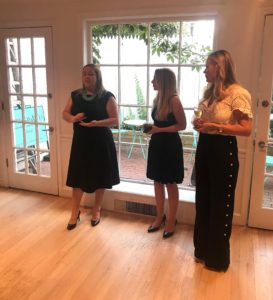
BRAWS Founder Holly Seibold with Madeline Middlebrook and Kathleen Kennedy of Kennedy & Co. speaking to event attendees on menstrual equity.
According to United Way, 30% of our region’s residents are liquid asset poor. That means that many families in D.C. do not have the means to cover basic necessities if faced with job loss for three or more months. Often, this can mean that access to basic necessities like menstrual supplies and underwear is impossible. Some low-income people resort to selling their SNAP (Supplemental Nutrition Assistance Program) benefits, forgoing meals in order to buy menstrual supplies.
Those fleeing domestic violence circumstances have the potential to lose access to supplies and resources in the process. Due to demand, shelters for survivors of domestic violence often are ill-equipped to provide necessities on a month-to-month basis. Absence of these basics can hinder the survivor’s ability to find gainful employment, continue their education, or re-enter the community with confindence.
Complications to access of menstrual products is heightened for transgender or gender non-conforming students and adults who are forced to use ill-stocked non-gender neutral bathrooms. From fearing for personal safety while opening a pad or tampon inside a male-designated bathroom, to the wage gap that trans and non-binary people experience in the workforce, basic dignities go to the wayside.
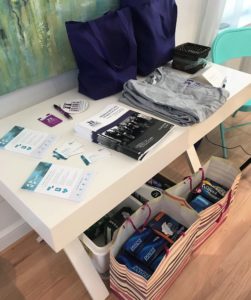
Donations table with info. on UPIC and BRAWS
For many children in public schools, the absence of menstrual supplies can lead to missing up to a week of classes every month.
Legislation surrounding menstrual equity in schools has been largely non-existent. According to the BRAWS Report on Menstrual Inequity. However, California, Connecticut, the D.C., Virginia, Maryland, Illinois, Michigan, New York City and State, South Carolina, and Tennessee have passed legislation in order to provide menstrual products free of charge to students in school. These jurisdictions are expecting an increase in attendance directly related to their efforts. Jurisdictions report 2.4% increase in student attendance after implementation of these programs.
“We’re not talking about rocket ships; we’re talking about sanitary pads. Yet they both have the same effect. They take you places.” -Diana Sierra, Founder BeGirl2
Donations from last weeks event will be handed out at United Way’s Project Homeless Connect event on September 20th at the DC Armory. BRAWS is expecting 400 or more homeless women and girls to attend in search of supplies. If you or your company would be interested in volunteering at this event, please contact a BRAWS volunteer coordinator at info@BRAWS.org.
BRAWS, UPICares, and Kennedy & Co. formed a great partnership to provide hope, dignity, and resources to those in need. A full report on Menstrual Inequity can be read here.
Author Jessica Lay is UPIC’s Program Lead for UPICares, the organization’s philanthropic initiative. She spends half of her time assisting patients through UPIC’s contact center and recently completed a degree in Aging Services Management. Follow us on Twitter and Instagram @UPICHealth.

